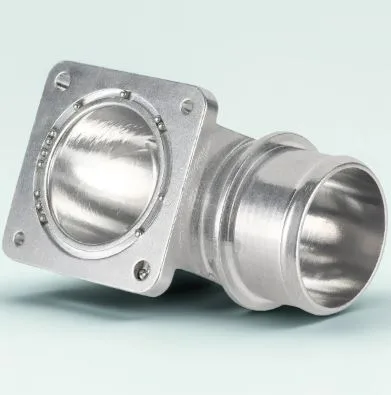The Ultimate Guide to Vaccination Schedules for Puppies and Kittens
Preventive health starts with a solid vaccination plan to keep your furry family members healthy. With proper immunization, pets can have dangerous diseases eradicated, promoting their long-term health. With Vet Today aiding you, you can skillfully manage your puppy or kitten’s timeline, making certain they are strong and safe through all stages of growth.
This document aims to help you understand how vaccines work, their respective scheduling, and what to expect through your pet’s first year and onwards.
Vaccines are necessary as kittens and puppies have underdeveloped immune systems. For timely vaccines, you will gain the ability to get:
- Prevention of life-threatening risks such as parvovirus, rabies, and feline leukemia.
- Reduction of contagious risks to other pets and even humans.
- Decades of lasting immunity aiding during adulthood.
If vaccinations are delayed or skipped, pets can face numerous risks. Following a professional schedule ensures your pet stays safe.
Vaccines are divided into two groups, core and non-core.
Core vaccines are vital to all pets, irrespective of their environment or lifestyle. Pets, however, need to be given additional vaccinations based on their environment.
- Non-core vaccines are suggested based on your pet’s well-being, breed, and risk factors.
For puppies, core vaccines typically include:
- Distemper
- Parvovirus
- Hepatitis
- Rabies
For kittens, core vaccines often cover:
- Feline panleukopenia
- Calicivirus
- Herpesvirus
- Rabies
Non-core vaccines can include Bordetella and Lyme disease, or feline leukemia, based on your vet’s recommendation.
Puppy Vaccination Schedule: Week by Week
Following a well-defined schedule will help your puppy obtain strong immunity. Here is a basic schedule most veterinarians work with:
6–8 Weeks
- Initiated with the first dose of DHPP (distemper, hepatitis, parvovirus, parainfluenza).
- Bordetella at their discretion.
10–12 Weeks
- Second DHPP booster.
- Optional add-on lifestyle non-core vaccines.
14–16 Weeks
- Third DHPP booster.
- Rabies vaccine (often legally required).
12–16 Months
- Final DHPP and rabies booster.
After these scheduled visits, vets will provide annual checkups that assist in maintaining immunity with boosters as recommended.
Kitten Vaccination Schedule: Week by Week
Like puppies, kittens also require a sequence of vaccinations to protect their health. Below are basic recommendations:
6–8 Weeks
- Initiated with the first dose of FVRCP (feline viral rhinotracheitis, calicivirus, and panleukopenia).
10–12 Weeks
- FVRCP second booster.
- Optional Feline leukemia (FeLV).
14-16 Weeks Old
- Third FVRCP booster given.
- Rabies vaccine given.
12-16 Months
- Rabies booster.
- FVRCP booster.
Similar to puppies, adult cats are also required to have periodic booster shots to sustain their immunity.
The Rationale For Vaccinating Pets
Whenever a vaccine is given, it is accompanied by harmless antigens, which are put into your pet’s body. This “primes” the immune system to identify the vaccine and battle the disease.
Kittens and puppies usually have to go through many doses due to maternal antibodies, which interfere with early vaccines. There are attempts to make up for this gap through regular boosts.
Preparing Your Pet for Their Vaccine Appointments
Ensuring that pets have stress-free visits for their vaccine is crucial for their owners, too. Below are a few tips:
- Ensure the vaccination schedule is followed.
- Keep your pet calm before and after the appointment.
- Reward your pet for good behaviour.
- If you’re unclear on the reason for a specific vaccine, always ask your vet for clarification.
Common Side Effects and What to Look For
Most pets tolerate vaccines quite well, though mild side effects may occur, such as:
- A bit of swelling in the area where the shot was given
- Fatigue or lethargy
- Drop in appetite for a day
Severe reactions are rare, but some pets may experience extreme swelling, difficulty breathing, or vomiting. These symptoms are quite concerning, so be sure to reach out to your veterinarian right away.
Boosters and Vaccination for Adult Pets
It is important to note that vaccines are not a one-time treatment. Pets with a greater risk of exposure will need booster shots to reinforce protective antibodies. For the majority of pets:
- Core vaccines will need to be boosted every 1–3 years.
- Non-core vaccines may need to be updated more frequently for pets in a high-risk setting.
Failing to administer booster shots puts your pet at risk due to loss of protection.
Factors That Influence An Animal’s Lifestyle
Each pet is an individual with unique needs, and a veterinarian may tailor the schedule and adjust it based on:
- Living core: Indoor Living vs Outdoor Living
- Travel
- Interaction with other animals
- Certain breeds
- Pre-existing health concerns
Tailoring the plans provides specific defense healthcare marks as an agility-vaccination that will be achieved with minimal reactions.
Preventing Common Pet Diseases
While vaccines are essential for preventative care, they are most effective when paired with these additional practices:
- Balanced nutrition boosts immune function.
- Routine veterinary checkups aid in preventive health care.
- Reduce pathogen exposure by keeping living spaces hygienic.
- Socialize your pet, especially in the first few months of life, but do so carefully.
How to Choose the Right Veterinary Partner
Finding a trustworthy veterinarian is a critical part of your pet’s health care. Make sure the clinics you consider:
- Develop personalized vaccination protocols
- Administer high-quality vaccines
- Communicate potential side effects and aftercare clearly
- Maintain a clean and secure environment for pets
With professionals like Vet Today guiding you, your pet’s care journey will be smooth.
Common Vaccination Myths
Due to false information, some pet owners are reluctant to vaccinate. Let’s look at a few myths and their truths:
- Myth: Indoor pets do not need to be vaccinated.
- Fact: Numerous airborne diseases and pathogens can be brought into the home on clothes and footwear.
- Myth: Vaccines are harmful to pets.
- Fact: Pets are not vaccinated with full-strength diseases, and in most cases, only weak or dead forms are administered, so they cannot become truly ill.
- Myth: Vaccines are not necessary for older pets.
Fact: Boosters are vital even for senior pets since vaccinations can lose effectiveness over time.
The Consequences of Not Keeping Up With Vaccinations
If vaccinations are neglected, the consequences can be devastating. The cost of treating parvovirus or feline panleukopenia is thousands of dollars, and survival is never certain. The emotional toll is also high. Regular vaccinations are far more cost-effective and provide the best prevention.
The Long-Term Benefits
Pets also get the following long-term benefits from being vaccinated:
- Chronic diseases are less likely to occur.
- The risk of severe injuries or ailments like a stroke or heart attack is minimized.
- Interactions with other animals and people become safer.
- Over time, the pet will become less expensive to provide healthcare for.
These outcomes present a strong case for investing in a proper vaccination schedule.
When to Ask Your Veterinarian
Pets with chronic conditions need special care. Here are a few more reasons to speak with a veterinarian:
- Changing timelines for vaccines.
- Traveling overseas with the pet.
- Merging other treatments with vaccinations.
Pets need personalized attention, and a vet’s guidance helps ensure they get the best care available.
Conclusion
Developing a vaccination schedule is one of the critical steps toward protecting a puppy or a kitten’s health. Following the guidelines and working with a trusted provider like Vet Today ensures that your pet is not afflicted with illnesses and that you will be able to enjoy their company for many years.
For more resources, hints, and professional insight, check Veterinarian Today for a trusted pet health information resource.




